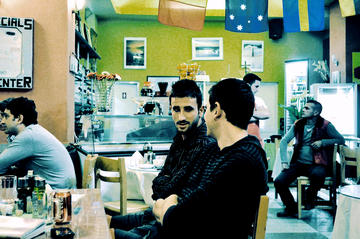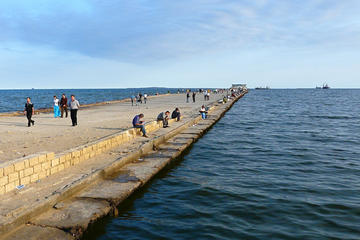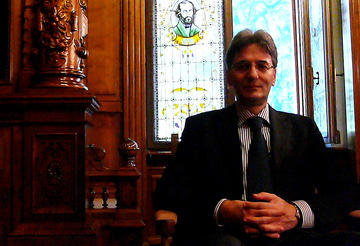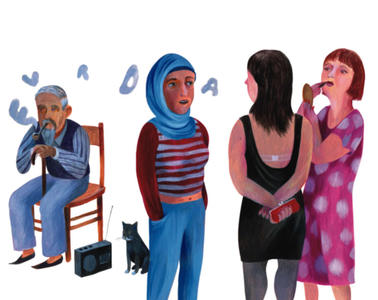Their identity is not based on the past, but on their commitment to a common project for the future. They are members of a yet-to-become Europe: the Europe of the Mediterranean and the Black Sea. They consider the EU as a peace project, but they look beyond the borders of Brussels’ Europe. They seek a Europe where nobody is “more European” than the others; a democratic Europe where everyone has the same status, the same rights, the same opportunities.
Their Europe is yet to come: the “Europe of minorities”, the only one capable of restarting the EU project, leaving behind Westphalian states and granting sovereignty to the local communities and the supranational institutions.
Since its foundation in 2000, OBC paid growing attention to this idea of Europe. On our tenth anniversary, we again want to inquire into this vision of the “Old Continent”, analyse it and report to our readers. This year, we will travel in the collective mind of the Europeans, in an attempt to contribute to overcoming the fears that increasingly affect our societies. Or, at least, to try to understand them better.
Articles

4 November 2010
The European dream is strongly rooted in the imagination of Albanian young generations. Tirana's twenty-somethings, who grew up during the identity crisis of the nineties, are sure: Albania's future is in Europe. The European Union (EU) is seen as the solution to every problem, while few question the possible impact of integration in a country that, so far, remains isolated

The novel "Ali and Nino" tells about the love between an Azerbaijani and a Georgian teenager. Depicted as symbols of Asia and Europe, they meet in the Caucasus and there can be united. Almost one century after Ali and Nino was published, can the Caucasus be European and can it be united?
Interviews

25 October 2010
Giovanni Scognamillo, of Italian descent, is an expert in the history of cinema. He talks about his life in Turkey, inextricably intertwined with the life of his city Istanbul, through the eyes of a "forced cosmopolitan". Our interview

29 July 2010
Between 2007 and 2010, Leonard Orban was Romania’s first European commissioner for multilingualism. OBC met him to discuss the present state of the European project and the challenges ahead: migrations, prejudices, enlargement and identity
It's Europe - Daniele Dainelli
Ten pictures to tell the Balkans they belong to Europe. These photographs are a small sample of a larger reportage by photographer Daniele Dainelli, who travelled through most of the Balkan countries in with OBC journalist Davide Sighele in 2004.
Here and elsewhere – Francesco Pernigo
“Here and Elsewhere”, a project about immigrants in northern Italy, has delivered a multimedia DVD with interviews to 30 new citizens of the Area of Vallagarina in Trentino-Alto Adige region. Pictures by Francesco Pernigo.
Block: Banner Newsletter
Archive

Dial M for Multiculturalism
The government of Skopje is trying hard to pay respect to diversity. Some analysts argue that, despite a difficult start, Macedonia remains the only viable example of successful ethnic co-existence in the Balkans. This may also be an exaggerated statement, but it is worth thinking about it

The fall
The end of division in Europe, the end of Yugoslavia, the advent of globalisation: an interview with Rada Ivekovic. A new article in the series on European identity, the new system of international relations and the memory of communism in the first 20 years after 1989

A new Thessaloniki
The Integration of the countries of the Western Balkans into the European Union needs a new momentum. Christophe Solioz and Paul Stubbs think that there's a need for a new summit on the model of the Thessaloniki conference of June 2003

Serbia: visa free
From December 19, citizens of Serbia can go to Szeged, Thessaloniki, or Trieste for coffee...without a visa. There is happiness, but not for everyone. The most disappointed are adolescents and those who were born and grew up under the sanctions. A commentary





 To Top
To Top